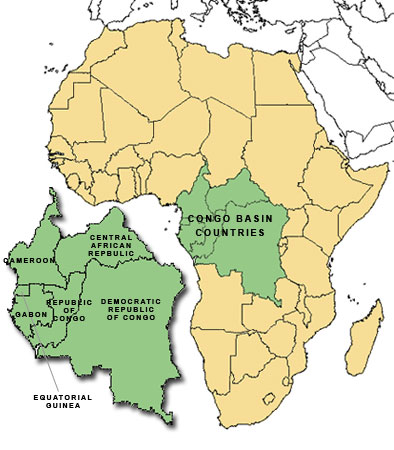http://www.colinturnbull.com/
http://www.mnsu.edu/emuseum/information/biography/pqrst/turnbull_colin.html
Colin Turnbull was an Englishman born in London who studied philosophy, politics and music. He was an important intellectual figure during the 60s and 70s and he studied anthropology at Oxford university, he then specialized in the African field, he got interested in this field when he traveled to East Africa, the Congo, the Sudan and Egypt on a motorcycle trip in 1951, that was when he first met the Pygmies. Then in 1954 he returned to Africa to investigate and record the native music and then he went again to study the Pygmie life in more depth. Turnbull made around 6 long trips to the Congo. During these trips he met an African who would later on be his partner. His African partner’s name was Joe Towels and they were partners for 30 years. They lived in New York and rural Virginia but in 1988 Joe Towels died of AIDS. After Towels death, Turnbull went into a deep depression and went to the Dalai Lama’s eldest brother to become a Buddhist monk afterwards he ended up giving away all the money he had and taught music, fieldwork, farming and writing until his own death in 1994 caused by AIDS as well.
martes, 31 de agosto de 2010
miércoles, 18 de agosto de 2010
Perception IS Reality.
Perception is the way in which an individual sees the world. The brain is so powerful that is able to store memories and necessary skills so that the person can survive. These memories or experiences are what help and make each of us different from another even though we see the same thing or hear the same thing. This suggests an explanation for why some people are passionate about some things and other people are just not interested. The way we see the world is important because only we can appreciate it, we are unable to make others see the world as we do. Which is why the phrase "perception is reality" comes to be true. As we cannot see the world as others do. Our brain just takes in information, connects it to our experience and thats why we decide if we like something or not. For example, when we encounter an image that has different shapes, our brain automatically tries to work out what the object could be and when it finds a shape, that is what we see. However, there are some ways in which perception can be tricked and we see distorted images or images which are not what they look like.
 http://www.google.hn/imgres?imgurl=http://www.awakeningstarseeds.com/perception_vase.gif&imgrefurl=http://www.awakeningstarseeds.com/perception.htm&h=300&w=300&sz=3&tbnid=b6ZUU-906Ho9-M:&tbnh=116&tbnw=116&prev=/images%3Fq%3Dperception&hl=es&usg=__2aBycEHaowq1FQcWuF64MejlLco=&sa=X&ei=XT5sTO-SBIWclgeHm6gv&ved=0CDUQ9QEwAw
http://www.google.hn/imgres?imgurl=http://www.awakeningstarseeds.com/perception_vase.gif&imgrefurl=http://www.awakeningstarseeds.com/perception.htm&h=300&w=300&sz=3&tbnid=b6ZUU-906Ho9-M:&tbnh=116&tbnw=116&prev=/images%3Fq%3Dperception&hl=es&usg=__2aBycEHaowq1FQcWuF64MejlLco=&sa=X&ei=XT5sTO-SBIWclgeHm6gv&ved=0CDUQ9QEwAw
http://www.whitedovebooks.co.uk/articles/sp/perception.htm
 http://www.google.hn/imgres?imgurl=http://www.awakeningstarseeds.com/perception_vase.gif&imgrefurl=http://www.awakeningstarseeds.com/perception.htm&h=300&w=300&sz=3&tbnid=b6ZUU-906Ho9-M:&tbnh=116&tbnw=116&prev=/images%3Fq%3Dperception&hl=es&usg=__2aBycEHaowq1FQcWuF64MejlLco=&sa=X&ei=XT5sTO-SBIWclgeHm6gv&ved=0CDUQ9QEwAw
http://www.google.hn/imgres?imgurl=http://www.awakeningstarseeds.com/perception_vase.gif&imgrefurl=http://www.awakeningstarseeds.com/perception.htm&h=300&w=300&sz=3&tbnid=b6ZUU-906Ho9-M:&tbnh=116&tbnw=116&prev=/images%3Fq%3Dperception&hl=es&usg=__2aBycEHaowq1FQcWuF64MejlLco=&sa=X&ei=XT5sTO-SBIWclgeHm6gv&ved=0CDUQ9QEwAwhttp://www.whitedovebooks.co.uk/articles/sp/perception.htm
lunes, 16 de agosto de 2010
Why Psychology?
I've been studying psychology for about a year and I've really liked it so far. The reason why I chose psychology was because I thought it was an interesting subject and I wanted to actually find out what psychology was about. Now that I have a clearer idea of what psychology is and how it is divided. I would like to take that and apply it in what could be potentially my career. However, I'm still unsure how I am going to achieve it as there are many factors that affect my decision. Psychology has helped me understand more things about human behaviour and has shown me possible explanations for every day behaviour.
Suscribirse a:
Entradas (Atom)




